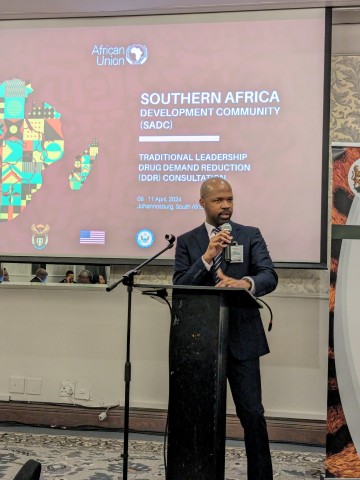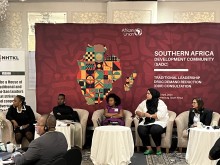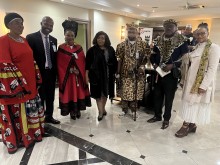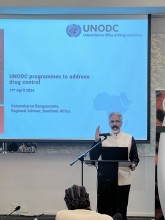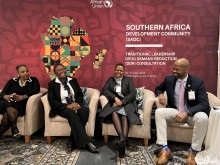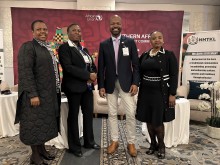This past week (8 - 11 April 2024), our newly appointed Scientific Advisor Goodman Sibeko attended the African Union engagement with the Southern African Development Community (SADC) traditional leaders, which sought to explore strategies for engaging traditional leaders in drug demand reduction. What is clear from the outset is that not only are traditional leaders very much aware of the challenges faced by their communities with regards to substance use disorders, but that traditional leaders are eager to identify ways to address this urgent concern. It is a reality that Africa has over time evolved from a largely transit pathway to increasing engagement in illicit substance use on the continent. It is undeniable that Africa, in spite of her rich mineral wealth remains inundated with the overwhelming task of ensuring better access to health, resources in general and development in many parts, and the infiltration of substance use disorder is a clear and present hindrance to efforts to achieve this. It is clear that traditional leaders hold a unique position in our communities as natural and lifelong leaders who are afforded respect and relevance, not just by traditional communities, but by society at large. Traditional leaders are not at the mercy of time-limited terms that might impede their capacity for commitment to long-term programmes and goals.
This week, traditional leaders from the SADC shared their respective reflections and concerns about community engagement in harmful substance use and the burden posed by substance use disorders in their communities. Leaders shared specific examples of trauma experienced by communities and on strategies that have thus far been trialled and shared anecdotal evidence of frustrations and of successes. There was an overwhelming sense that traditional leaders are eager to engage in best practice sharing and to capacitate themselves and their communities in evidence-based strategies to address substance use disorders, with a strong focus on detection, prevention and recovery support. Traditional leaders are open to the possibilities posed by closer partnership with networks such as ISSUP, ICUDDR and ITTC in a structured plan to mobilise resources to address harmful substance use.
Stakeholders such as ISSUP, ICUDDR, and ITTC presented the suite of interventions currently on offer to support efforts to best integrate traditional communities in drug demand reduction. Other partners included research organisations such as the South African Medical Research Council, Universities such as University of Cape Town, and national government departments from SADC countries, notably Departments of Health and Social Development. Traditional leaders engaged with offerings and framed clarifying questions to best understand the relevance of these interventions for their contexts. It was heartening to witness the explicit support of the government leadership in South Africa, evidenced by the presence of the National Minister of Social Development, the Deputy Minister of Correctional Services and the Deputy Minister of Cooperative Governance and Traditional Affairs. An action plan was drafted which will be implemented under the stewardship of the African Union Commission, and which will see our own network partners feature strongly as a significant resource for ensuring the success of this timely and essential strategy. We aim to keep the ISSUP community updated. Please do reach out in the event this topic is of interest and we will explore ways in which we can be as inclusive as possible in providing support to African Union Commission and Traditional Leaders, and their communities.
